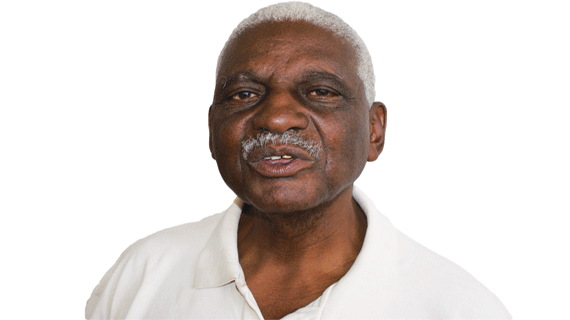
Author: Matthew Ashimolowo
Publisher: Destiny Image Publishers
Years Published: 2007
Number of Pages: 348
ISBN: 10:0-7684-2638-3
ISBN: 13:978-0-7684-2638-0
THE bottom line of this sad discussion about us the blacks is that “we seem to belong at the bottom of the pile, or the bottom of the pyramid, economically, socially, physically, mentally, etc,” page 7.
We belong there totally as blacks. Can somebody please disprove this? However, this assertion does not exclude the existence of exceptions. But this statement falls on us the black race like a sledge hammer crushing stones. But is it a fact?
- Chamisa under fire over US$120K donation
- Mavhunga puts DeMbare into Chibuku quarterfinals
- Pension funds bet on Cabora Bassa oilfields
- Councils defy govt fire tender directive
Keep Reading
Let us look around us, let us look all round the earth. Does this question arise?
When I asked this question among some friends I received two very opposite answers: That is a stupid question. Africans so far have contributed a lot to the overall development of this world; they are not at the bottom of anybody’s pile.
My friend, facts are hard to face. What major inventions have the blacks contributed? Why are mostly blacks carrying the bowl round the world begging for donations. “Sicel’ uncedo” is a refrain repeated all over the globe from the blacks.
This forces Ashimolowo to ask an intriguing question: Number 7 on Page 8: “What is responsible for Africa being the richest continent and yet inhabited by the poorest people?”
In Chapter 5, he has detailed the mineral wealth of Africa scattered throughout the continent from South Africa to the Mediterranean and from Mozambique to Morocco. Ashimolowo must have done a lot of research to piece together all this information.
The amount of all this natural wealth scattered in almost all the countries of Africa is staggering. Africans should be swimming in wealth and leading all the other countries in living happy lives.
Yet, Ashimolowo says, that for various reasons Africans all over have failed to take advantage of all this wealth and allowed foreigners to come in to plunder the precious minerals.
“This began the use of Africa as a warehouse for raw materials to be used for the benefit of Europe,” page 53. Why? What is wrong with being black? Why does this sort of thing dog the black person where ever he may be on this earth? Is it a curse?
Ashimolowo has gone into details to enquire into why the blacks have remained at the bottom of the pile. Is it their religion which is clouded in superstition? Is it the vengeance of God for whatever wrongs the blacks have committed against him?
Is it poor governance all over the continent? Is it lack of mental capacity? What is it? Ashimolowo has looked at all possible reasons why blacks still lag behind other races in almost everything.
Those of the Diaspora do not seem to be “improved” by different environments. In America, thousands of blacks were shipped into slavery and for centuries they drilled and beaten into a slave mentality and they acquired a self-image of inferiority.
This inferior self-image appears to linger on even long after their liberation. The Jesse Jacksons (Jr) or Barack Obamas may be politically significant, but are not at the fore-front of real development that enhances human civilisation.
We have yet to see real inventors and adventurers into the uncharted world of science that introduce life- changing programmes.
Where are such blacks in this world?
Ashimolowo has looked into the area of misgovernance. Here there is no lack of examples all over Africa. The unfortunate thing about African rulers is that the worst of them cling to power for decades under the mistaken belief that they are popular rather than notorious.
On page 205 Ashimolowo summarises it thus: “One of the great pathologies of Blacks which has held Africa as a continent in slavery is misgovernance by its own rulers . . . negative words to describe the misgovernance going on in Africa including: massive corruption, political instability, coups, disunity, manmade economic problems, nepotism and human rights violations.”
The real problem with black rulers is that nearly all of them are bigoted. They will not listen to any good advice. The only exception is Nelson Mandela of South Africa who voluntarily quit politics before he was corrupted.
In the same vein, the author examines what he calls the leadership crisis among the blacks not only from the narrow political spectrum, but from a whole social view. He sees leadership as lacking among the blacks.
It may be correct that poor governance and poor leadership in Africa both stifle initiative and many would –be- innovators simply hide in their shells.
Chapter 12 talks about black on black crime. It is a fact that throughout the world where blacks may be found in significant numbers, they do not promote each other in anyway.
Their tendency is to pull each other down. They rejoice to see their fellow blacks failing. Ashimolowo puts it even more strongly when he says that a black man is more likely to die from the bullet of another black man.
Some of the failures of blacks to rise in the world scene may be placed squarely on themselves — they are the enemies of themselves.
The back cover on the outside concludes the matter very sarcastically: “So what’s wrong with being Black? Nothing.”










